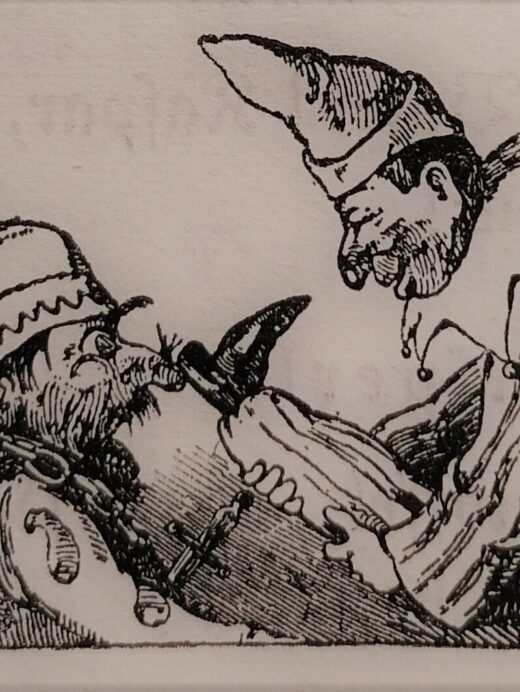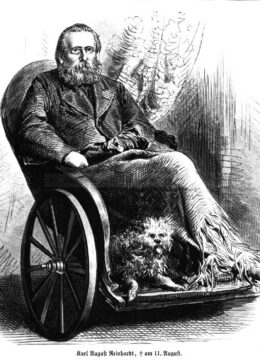
Printed
15 pages
Author(s)
Kasperl und Don Juan
In 1852 Carl Reinhardt published a series of pieces for Kasperl to accompany the illustrated plates he was publishing in the Münchner Bilderbogen. The text, written by an unknown autho, thus serves primarily as a caption for a graphic work that made Reinhardt the father of the comic strip in Germany, and was certainly not intended to be performed on stage. Nevertheless, these short sketches reproduce typical scenes and routines from the puppet repertoire of the time: here Kasperl pushes his pointed hat into Pantolfius' ribs, kicks him in the nose... We find in him the brutality of Pulcinella or Punch, a bad drunkenness and the expressions that will become characteristic of the character: the song "Radi-ridi-rulala - rulala - rulala", as well as the magic formula "Parlicke" to summon the devil, which Kasperl may have learned from the version of Faust published by Karl Simrock in 1846. Don Juan is merely an auxiliary: he is there so that Kasperl can make a spectacle of himself.
The evil son punished
Don Juan has asked his servant Kasperl to sell his last shirt and coat, but Kasperl has spent the money from the sale on beers. He sends him to borrow money from his father, the knight Pantolfius. When Pantolfius refuses, Don Juan himself comes to ask him to comply, but in vain, and Kasperl kicks him in the nose. To find money, Kasperl then has the idea of summoning the devil, but when Don Juan wants to sell him his soul, he replies that it already belongs to him and takes it to hell.
Publications and translations
Carl Reinhardt, Das wahrhaftige Kasperltheater, Münchner Bilderbogen, 1852
Louis Lemercier de Neuville, Histoire anecdotique du théâtre de marionnettes. Paris: Calmann-Lévy, 1892, p.49-55.
(French)
